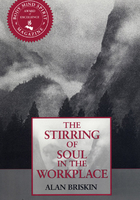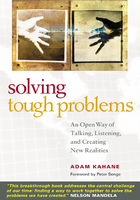It's often said that there is no such thing as a coincidence. Given the dynamic nature of the universe, when things happen, they happen for a reason. So, when the two of us met on an early morning flight from San Diego to New York, it was not by chance.
Perhaps it was serendipity-something that was destined to happen, that was meant to be. If we pursue this concept further, we find the Yiddish word bashert, which roughly translates into "a happy, joyous event that was meant for good."
"So what are you into and what's new in your life?" was the beginning of our plane conversation. For the next fifteen minutes, we spoke with growing enthusiasm and animation. We talked about the things we were doing, and especially what we were excited about. When Morton mentioned he was working in the area of older adults and looking at aging from a new and different perspective, Ken piped up and said he'd been thinking about similar issues. The term he was using was refire-an attitude of embracing the years ahead with enthusiasm rather than apathy. At that moment, this book was born.
We continued talking nonstop, leaning over the airline seats that separated us. Finally, we had to be forcibly seated by the flight attendants so that the plane could take off. Throughout the five-hour flight to New York, we continued to exchange ideas until the movie came on and silenced us. As we deplaned, we decided to meet soon to continue the conversation.
By the time we met again, Morton had attended a birthday party for someone he had known in college. He came back intrigued by what he had observed. It wasn't just that everyone looked older-of course they did. It was how differently they were approaching aging. While some seemed intellectually energetic and engaged in the world, others seemed to have little joy or sense of a future-nothing they were striving for.
Coincidentally, Ken and his wife Margie had just returned from a two-week cruise. Ken reported similar observations about his fellow travelers, most of whom were seniors. Some were vivacious, taking advantage of the classes and activities offered by the cruise ship, while others were withdrawn and didn't come alive until mealtime.
As we discussed what each of us had experienced, we began wondering what accounted for these two different ways our age group was handling aging. Why were some people seeing the rest of their lives as an opportunity, while others were treating it as some kind of sentence?
Talking about this with our adult children, we discovered that this view of life was not limited to seniors-our middle-aged kids had some friends who also had the "best years are behind us" approach to life.
We thought about those of our friends and colleagues who were embracing-rather than enduring-life and tried to figure out what made them different. We concluded that much depended on what they believed about growing older and how they were approaching life. We also concluded that if those who were merely enduring could be helped to think differently, they might begin to behave differently and, if you will, refire.
What are you going to do with the rest of your life to make it healthy, joyful, and meaningful? We wrote Refire as a guide to answering that question. In the parable and suggestions that follow, we hope you find inspiration to create an exciting future.















